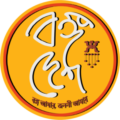– Subhabrata Das
The World Economic Forum, the global platform for Public-Private Partnership, hosted its second Sustainable Development Impact Summit in New York on 24-25 September to drive progress towards meeting the 2030 Agenda for Sustainable Development Goals (SDGs) and Paris Agreement on climate change by juxtaposing some of the best minds together. Participants included businessmen, social entrepreneurs, scientists, diplomats and policymakers from various nations and I was fortunate to be a part of such a meeting aimed at energizing existing partnerships while catalyzing new collaborations to achieve far-reaching, socially inclusive, sustainable global impact. They include focus on bridging the gender gap, protecting the earth’s dwindling biodiversity, fighting disease and broadening the benefits of trade across multiple nations.
 Mr. Sunil Bharti Mittal, Chairman, Bharti Enterprises and a summit Co-Chair, in his opening remark at the SDG Meeting remarked: “Technology holds the key. It can mitigate the absence of capital.” He noted how fast evolving technology in mobile phones can bridge many gaps in healthcare and education where there is limited access to physical schools and clinics. “When we put a phone in the hand of the poorest of the poor and connect them, we start to see the magic of technology and innovation come through,” he added. Mrs. Urvashi Sahni was honored as India Social Entrepreneur of the Year 2017 by the Schwab Foundation for Social Entrepreneurship, in partnership with the Jubilant Bhartia Foundation for Work with Disadvantaged Girls. She mentioned about supply-demand issues in education sector in rural areas of India and problems of scaling in education in terms of teacher accountability and management due to bureaucracy and governance.
Mr. Sunil Bharti Mittal, Chairman, Bharti Enterprises and a summit Co-Chair, in his opening remark at the SDG Meeting remarked: “Technology holds the key. It can mitigate the absence of capital.” He noted how fast evolving technology in mobile phones can bridge many gaps in healthcare and education where there is limited access to physical schools and clinics. “When we put a phone in the hand of the poorest of the poor and connect them, we start to see the magic of technology and innovation come through,” he added. Mrs. Urvashi Sahni was honored as India Social Entrepreneur of the Year 2017 by the Schwab Foundation for Social Entrepreneurship, in partnership with the Jubilant Bhartia Foundation for Work with Disadvantaged Girls. She mentioned about supply-demand issues in education sector in rural areas of India and problems of scaling in education in terms of teacher accountability and management due to bureaucracy and governance.
Going beyond the Indian diaspora, concerns regarding increasing polarization in political values, truth distorted by fake news and superficial journals came up as we are in midst of democratic recession, lack of freedom of speech and information, censorship, violence against journalism and what not.“We will develop our country as a poverty-free country. For that, education is key,” remarked, Sheikh Hasina, Prime Minister of Bangladesh. She also emphasized the importance of diversified industrialization, a strong internal market and universal access to internet for Bangladesh to prosper in the era of Fourth Industrial Revolution.Open-source software is one way for government and other official institutions to offer the transparency to data that supports trust and human welfare.


